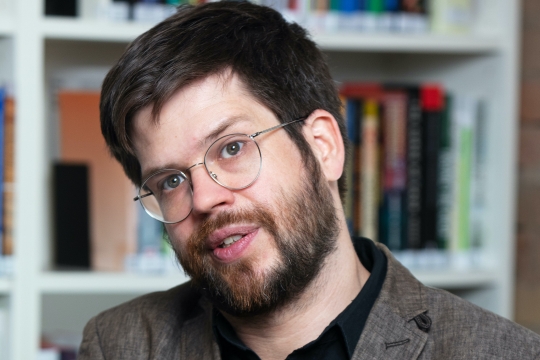Jan Steckel leads the Climate and Development group at the prestigious MCC in Berlin. He emphasizes that mitigating climate change can entail development trade-offs that need to be understood, and presented openly to policy makers. Meet one of the inspiring keynote speakers at EfD’s Annual Meeting!
What made you interested in climate change in the first place?
I developed an interest in climate change sometime in high school. At the university, I focused on environmental and energy issues. My interest in climate and development was triggered when I spent some time in Indonesia, working on an island that was hit heavily by the 2004 tsunami. It surprised me that nobody really thought about renewable energy and climate change when rebuilding the island.
Tell me about your work!
I work at the Mercator Research Institute on Global Commons and Climate Change (MCC) – bulky name for a great institute! I’m heading a group of thirteen excellent researchers. We want to understand how climate policy can work given political realities. In this regard, we aim to conduct research that is policy relevant without being policy prescriptive. Regarding the science-policy interface, we like to see ourselves as map makers who present different pathways how to deal with the – sometimes difficult – trade-offs when it comes to climate change mitigation.
Why are there difficult trade-offs?
I’m passionate about carbon pricing. But a carbon price often leads to higher energy prices, which in turn also increases the costs for many other things. That may affect low-income households; it may affect businesses, structural change, and development. If people are forced to collect firewood because they cannot afford alternatives, this will not benefit the climate and will also have other negative consequences, e.g. on human health. Trade-offs can be eased, for example by social policies, which leads to interesting questions: What is the best way to use the revenues from carbon pricing? How can we design climate policies that are perceived as socially just?
What will you talk about at the annual meeting?
I will talk about how to make climate policy and in particular carbon pricing work in low and middle-income countries. Many countries, mainly in Asia, but also increasingly in Africa and Latin America, invest in carbon-intensive infrastructures, such as coal-fired power plants. This will lock them into emissions-intensive development pathways for many years. There is a rationale for introducing climate policy, such as carbon pricing at the early stages of development. But to make it both effective and acceptable we need to take into account regional circumstances in many ways. What is the role of high capital costs? How does climate policy interfere with other development objectives? Can we use existing transfer schemes to compensate the most affected groups? In this regard, we must also be aware of who might oppose a transition to sustainable energy and how they can be compensated. I focus on opportunities and how to use the money from carbon pricing in meaningful ways.
What are you extra proud of?
Apart from my two-year-old daughter? I am very proud of my team at MCC that works with climate change mitigation in low- and middle-income countries. We started from scratch in 2012. Since then we have established a fine reputation in Germany and abroad, including a lot of interaction with policymakers and practitioners.
What are your expectations for the Annual Meeting?
I’m very proud and happy to work with EfD. Even though it will be quite different this year I’m really looking forward to taking part in a lot of new and exciting research and meet some friends and colleagues – at least virtually.
By: Petra Hansson

